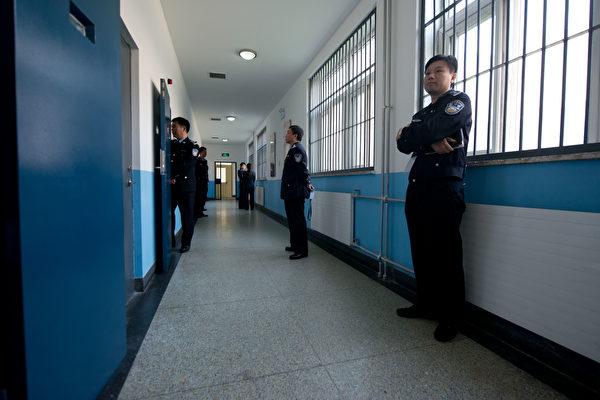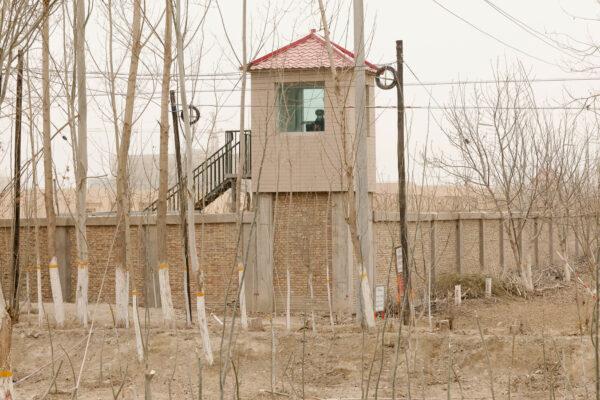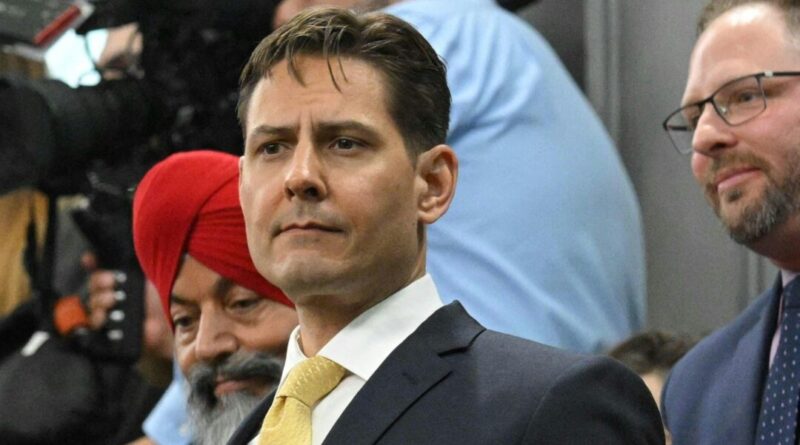Former Hostage Calls on Australia to ‘Sharpen Its Tools’ Against Foreign Arbitrary Detention
Michael Kovrig, a Canadian who spent over 1,000 days in arbitrary detetion in Beijing, says Australia needs to do more to ‘deny, deter and punish’ the practice.
Former Canadian diplomat Michael Kovrig—one of the “two Michaels” subject to arbitrary detention in Bejing in 2018—has told a Senate inquiry that Australia must “sharpen [its] tools to deny, deter and punish” the illegal imprisonment of its citizens abroad.
Kovrig called for a tougher response to arbitrary detention and said measures could be as wide-ranging as diplomatic, information, economic, financial, intelligence, law enforcement, and even military responses.
The Senate Committee on Foreign Affairs is looking at the best response to deal with the wrongful detention of Australian citizens overseas.
Australian citizens Cheng Lei and Yang Hengjun were notable detainees of the Chinese Communist Party (CCP)—Yang still remains China—while economist Sean Turnell was detained in Burma, and journalist Peter Greste was jailed in Egypt. Cheng, Turnell, and Greste have since been released.
The Canadian Kovrig was working for the International Crisis Group out of Hong Kong when he, along with fellow Canadian national Michael Spavor, were taken into custody in China in December 2018.
The move was seen as Beijing’s response to the arrest of Huawei’s chief financial officer, Meng Wanzhou, in Canada 10 days earlier.
The stand-off ended only after the pair had been held for 1,019 days.
On Sept. 24, 2021, Canadian Prime Minister Justin Trudeau announced they had been released, shortly after Meng was freed from house arrest in Canada.
“It was made clearly very clear that, to put it bluntly … released Meng Wanzhou, if you ever want to see these Canadians again,” Kovrig told the Australian Committee, calling the behaviour of Beijing’s security and intelligence officials “thuggish.”

Police guards stand in a hallway inside the No.1 Detention Center during a government-guided tour in Beijing on October 25, 2012. The facility has the capacity for 1,000 inmates Ed Jones/AFP via Getty Images
Kovrig described his time in Beijing as being characterised by “hundreds of hours of interrogation, solitary confinement without daylight, insufficient food, constant surveillance, stress and duress, and threats of worse treatment and dire consequences.”
He said he was not allowed to consult a lawyer and was denied books, letters, or any other material except basic clothing. Contact with the outside world was limited to brief monthly consular visits.
“Meanwhile, state security officers sought to brainwash me into confessing to crimes,” Kovrig said. “The suffering my loved ones experienced was also extreme.”
He told the Committee that the costs of detention were “asymmetric.”
“It’s really low for perpetrators, but high for targeted states, and, of course, tremendously severe for the victims, and we need to invert that equation; we need to deny states opportunities [to capture people] and punish violations.”
More Actions Besides Simple Travel Warnings
The risk of Australians being arbitrarily detained should be made clearer through more explicit warnings in travel advisories, and they should also reflect “the degree of risk of torture to detainees and prisoners.”
Rather than simply publishing such warnings online, they should be sent to travel agencies and airlines, which could be required to display a warning to citizens purchasing tickets to countries where detention is a risk.

A security person watches from a guard tower around a detention facility in Yarkent County in northwestern China’s Xinjiang Uyghur Autonomous Region on March 21, 2021. AP Photo/Ng Han Guan, File
In exceptional cases, Australia should consider banning or making it “extremely inconvenient” to visit countries considered high risk, as the United States does with Cuba and Russia.
Any foreign national of an offending country who is granted a visa to Australia should be sent information on their nation’s wrongful imprisonment practices, and this could even extend as far as denying the visa unless the would-be traveller provides proof they have written to their government, calling on it to release political detainees and cease human rights abuses.
In “extreme cases,” Australia should consider visa bans and other restrictions to “all members and staff of the offending political or governmental organisation and their families, as well as celebrities, influencers and athletes from the offending country,” Kovrig suggested.
“This would have the effect of raising the cost of hostage-taking and sensitising elites to the fact that their country is engaged in unacceptable activities.”
Regimes which arbitrarily detain people need to face greater consequences than is usually the case at present, Kovrig recommended.
A Threat To National Security
Kovrig also said arbitrary detention was a threat to the sovereignty and national security of nations.
“Economic leverage can be applied through WTO-compliant measures such as freezing any ongoing trade negotiations, delaying decisions on investments, and discouraging companies from doing business with the offending country,” he suggested.
“Financial restrictions like those employed by the US Treasury could be imposed, blocking the transfer of [money] to perpetrator countries and their financial institutions, restricting the use of credit cards and access to Western bank accounts through ATMs or money transfers,” he said.
Such sanctions should go beyond the country level, however, and target individuals and organisations known to be involved with, or who permit arbitrary detention—a penalty akin to the Magnitsky-style sanctions the Australian Parliament passed in 2021.
“Penalties could include restricting travel (visa bans) and freezing or seizing overseas assets,” Kovrig said.
“Such sanctions should target not only lower-level officers doing the detaining, but also senior decision-makers who ordered it, including those responsible for interrogations, torture and human rights abuses, illegitimate legal proceedings, and using detainees as bargaining chips. They should target the spokespeople and propaganda workers who disseminate false information about detentions.”
Such measures would only be lifted if the country released all wrongfully detained persons, and signed the declaration on arbitrary detention and fully adopted the U.N. Hostage Convention.





